Education is changing – but what does this look like in practice? What does the future of learning hold for students? At Bournemouth University we are responding to research that considers how teachers of the future will work with their classes.
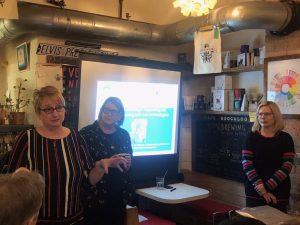
Drawing upon examples from fields as diverse as archaeology and nursing, Professor Debbie Holley, Professor Liz Falconer and Heidi Singleton (PhD Student) from the Centre for Excellence in Learning(CEL) showcased recent innovations to help support student learning, both inside and outside their physical classroom. 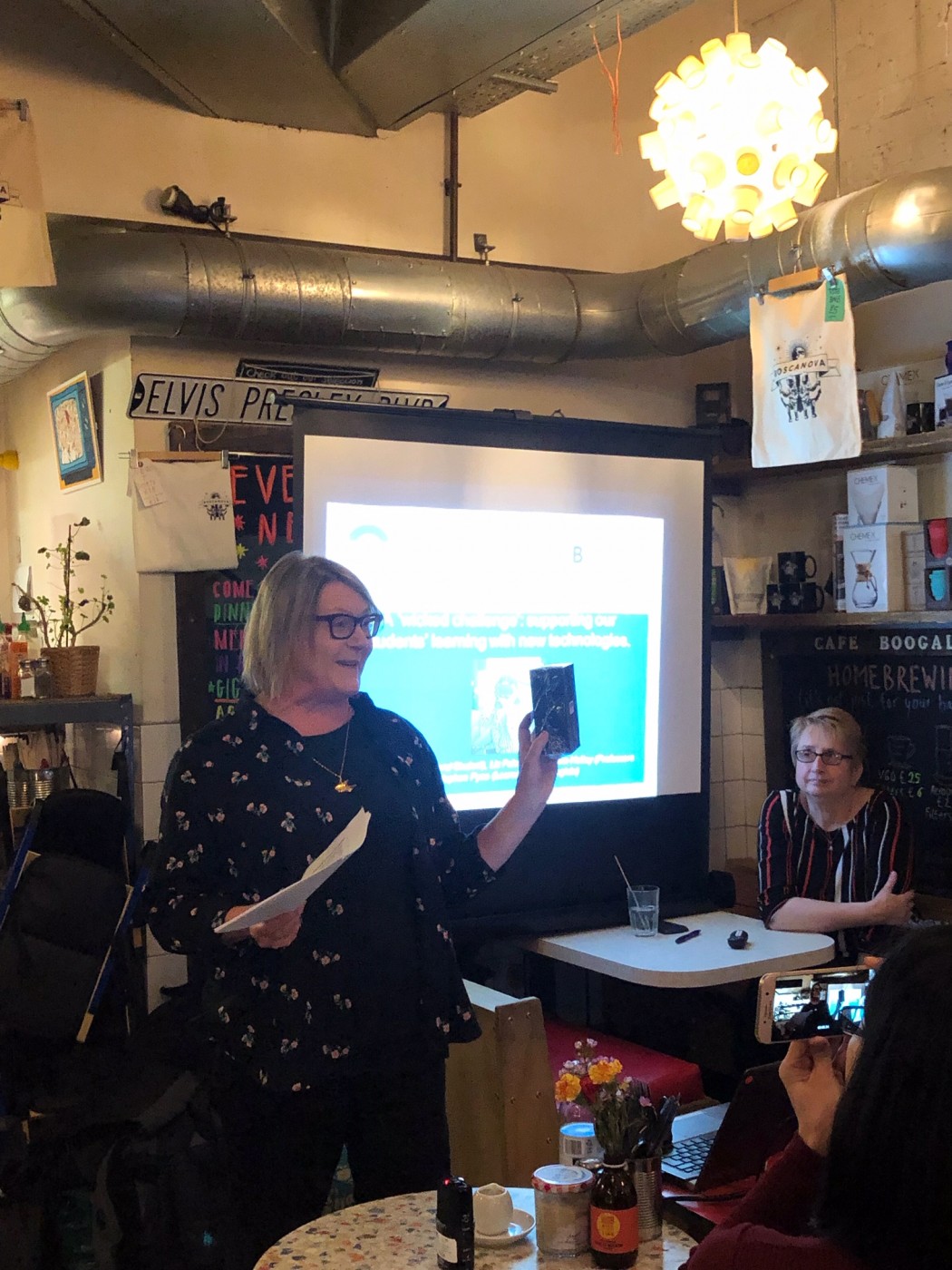
A Wicked Challenge
“It’s our wicked challenge”, Debbie told the BU Cafe Scientifique audience on Tuesday evening, as she outlined the current lay of the land in terms of Virtual Reality (VR) and Technology Enhanced Learning (TEL) in higher education, emphasising that it is an educators’ duty to offer digital opportunities to 21st Century students. Debbie explained, how although technology can be of great benefit, the “wicked challenge” is defining and addressing the significant challenges impeding TEL adoption in higher education.
Time to engage
After discussing their work, the CEL team, including BU Learning Technologists Stephen Pyne and David Hunt got interactive, giving the Cafe Sci audience the opportunity to engage with the Google Cardboard headsets, encouraging them to try out different virtual reality scenarios.
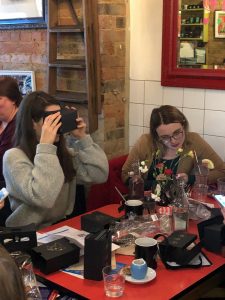
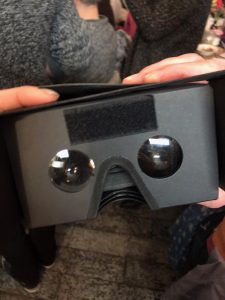
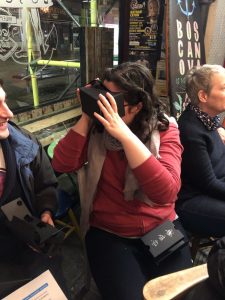
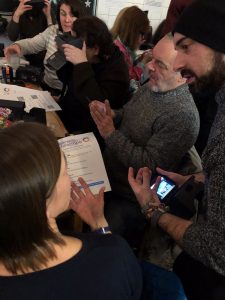
Virtual Avebury
It was fascinating to hear how Liz and her team had used Lidar data to simulate how Avebury might have looked and sounded circa 2,300 BCE in an immersive 3D virtual reality environment. Liz reported findings from her large scale project which was conducted with members of the public at the Avebury site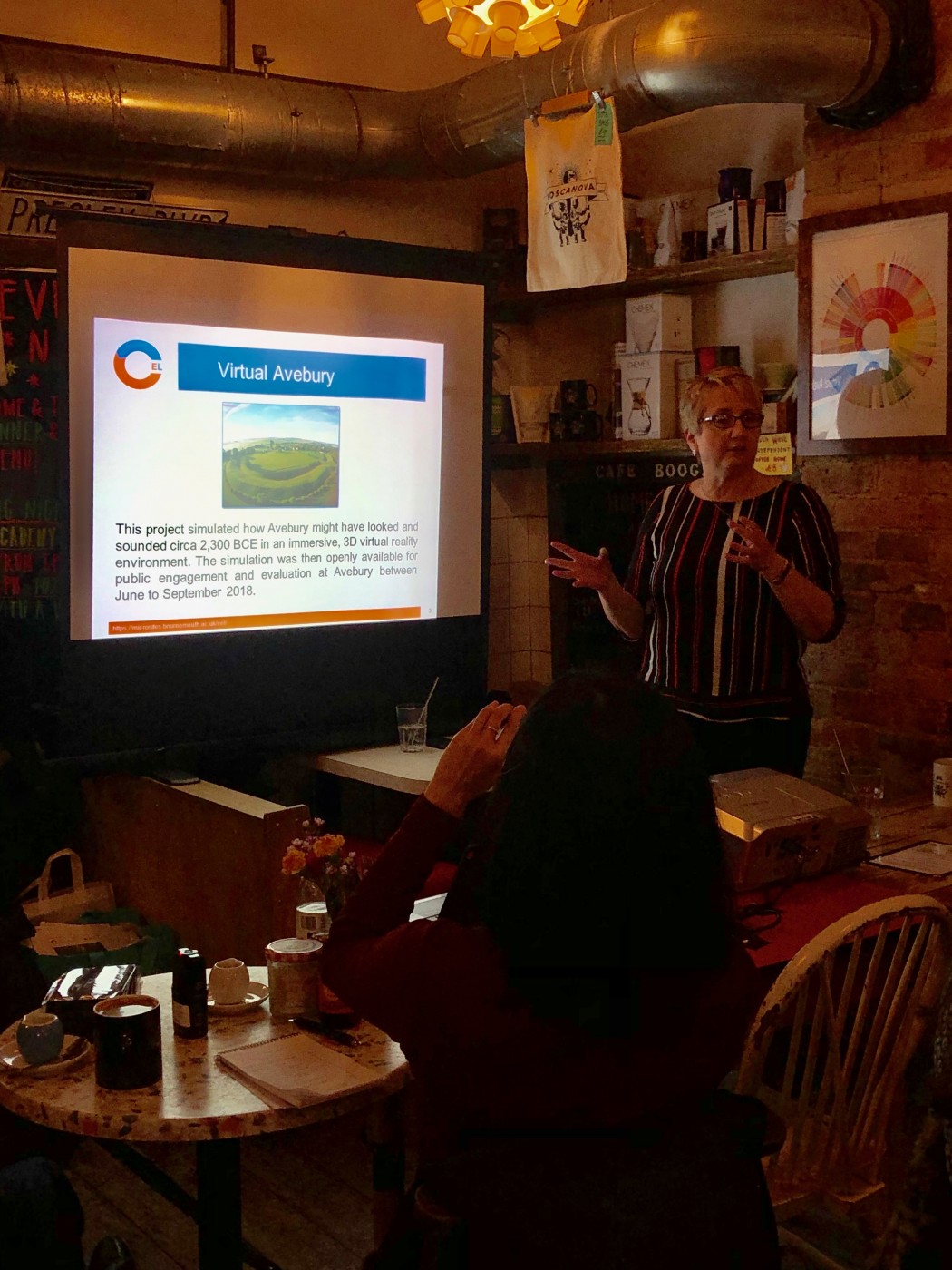 Not only did people enjoy visiting the VR Avebury, but for some it brought out an emotional reaction as they felt they had experienced some of what it would have been like to have visited the ancient site when it was still complete. One of the participants said; “I felt completely immersed in the landscape. It was really interesting to see the difference between the real stones outside and the simulation. The difference between the sizes of the banks and ditches was particularly striking!” Liz concluded with her favourite finding; that women over the age of 60 were the third most likely group to enjoy gaming (mostly on their mobile phones). It reminds us all not to pre-judge what we think people will find enjoyable and useful as a learning experience.
Not only did people enjoy visiting the VR Avebury, but for some it brought out an emotional reaction as they felt they had experienced some of what it would have been like to have visited the ancient site when it was still complete. One of the participants said; “I felt completely immersed in the landscape. It was really interesting to see the difference between the real stones outside and the simulation. The difference between the sizes of the banks and ditches was particularly striking!” Liz concluded with her favourite finding; that women over the age of 60 were the third most likely group to enjoy gaming (mostly on their mobile phones). It reminds us all not to pre-judge what we think people will find enjoyable and useful as a learning experience.
VR Deteriorating Patient
Heidi explained and demonstrated her research around VR Deteriorating Patient, a computer simulator that trains students how to nurse a patient who is suffering from Diabetic Hypoglycaemia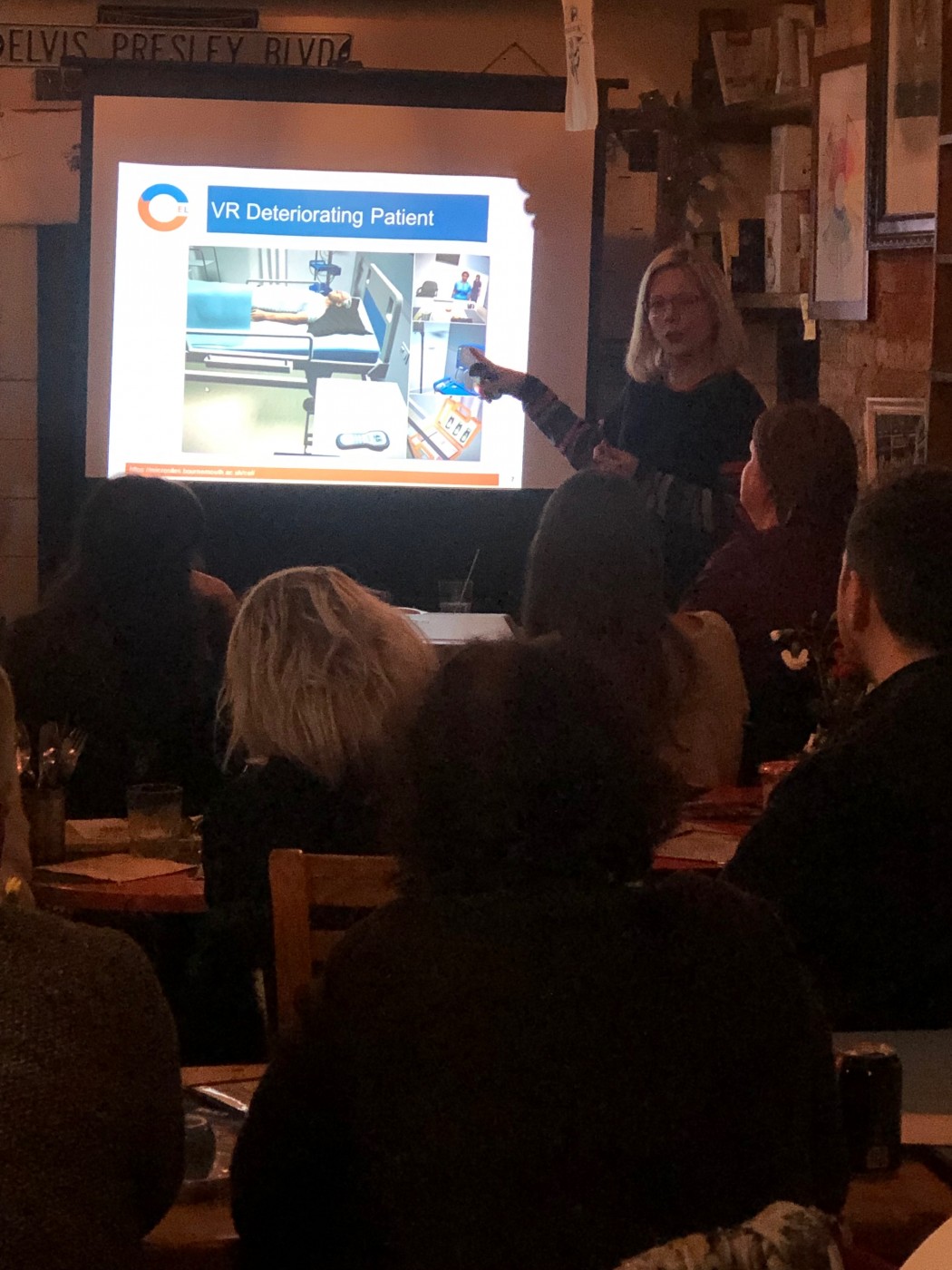
Working with CEL, HSS and in particular Dr Janet James, Heidi is conducting an RCT to compare the VR training exercise with traditional teaching methods. The initial findings are very positive, with students reporting that it helps to bridge the theory practice gap, some saying; “You can practice and it doesn’t matter if you make wrong decisions. It is a safe environment.” “It will stick in my mind better. I will use it again to revise before the exam.” “It helps me to visualise the learning.”
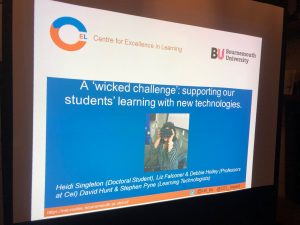 If you’re interested in finding out more about VR, AR or 360 Video you can contact the CEL Team @cel_bu
If you’re interested in finding out more about VR, AR or 360 Video you can contact the CEL Team @cel_bu







